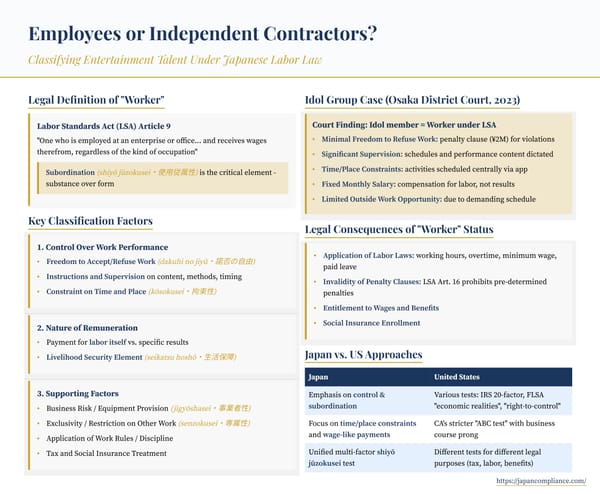TL;DR
* Japan is moving from lifetime employment to flexible, mobile careers, backed by new laws and policy.
* Key reforms: promotion of job changes, guidelines for side jobs, mandatory disclosure of job-scope changes, and heavy investment in reskilling.
* Employers must aggregate working hours across multiple jobs, manage health risks, and
